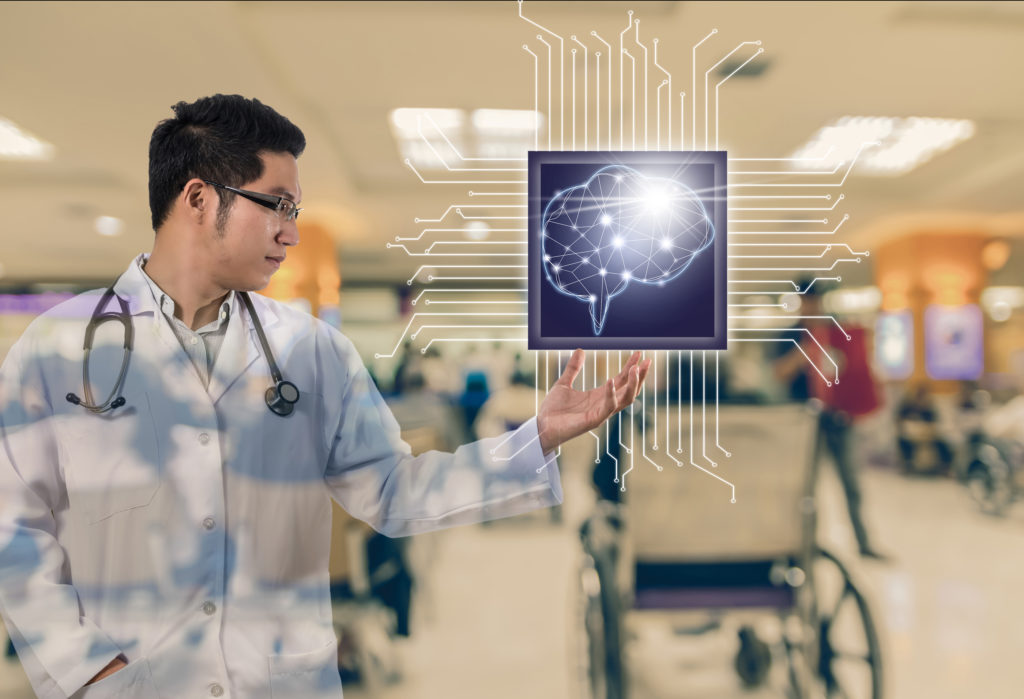
Artificial intelligence (AI) is poised to make an indelible mark on how business is done in a variety of fields. The AI industry will have tremendous impact on the way people and programs work together effectively. Here are the industries that are primed to see the most tremendous improvements in efficiency and cost savings this year.
Healthcare
AI is now contributing to the practicality of disease management and empowering people to make better lifestyle choices. It’s also creating a better pathway between patients and their healthcare providers. Plus, in a world that’s increasingly vulnerable to cyber security threats, AI can play a vital role in safeguarding the industry overall. It’s not an overstatement to say that the AI industry is crucial for healthcare.
For medical practitioners and providers, AI has led to a breakthrough in emerging drug discovery platforms. Additionally, many treatment centers are using AI-based diagnostics as a first-tier of clinical diagnostics, leveraging AI for enabling personalized medicine.
According to Mark Michalski, executive director of Massachusetts General Hospital and Brigham and Women’s Center for Clinical Data Science, by the end of 2018, half of the leading healthcare systems could adopt some form of AI within their diagnostic groups. It’s anticipated that 2018 will be “the year AI becomes real for medicine.” (Michalski, Dec 2017).
 Automotive
Automotive
There seems to be a new headline about self-driving vehicles permeating every news cycle as of late. Not only is AI “driving” driver-less cars, it can help build smart cars less expensively, ones that are capable of detecting and self-navigating various people, places, and things while in operation. The AI industry and the autonomous vehicles industry really go hand-in-hand.
The most prevalent of AI applications in the auto world is machine learning, which does much of what it sounds. Machines use data to teach themselves how to make real-time decisions in split seconds, similar to how humans learn and improve over time. Thus far, machine learning has been highly useful in developing advanced driving assistance systems. Outside of the vehicles themselves, machine learning has brought huge improvements to the sales and after service functions of the automobile life cycle.
Real Estate
The real estate industry hasn’t had a major breakthrough in decades, making it ripe for disruption. As Value Walk points out, AI has the ability to “reduce operational costs, improve customer service, improve efficiency, and reduce resource wastage” within real estate. AI bots in particular are revolutionizing other industries, and could be one of the first dominant AI technologies that both agencies and property owners adopt. Largely due to their relative ease of integration as compared to other facets of AI, AI bots are able to field queries about leasing, footage, and other common prospective buyer questions that come up during virtual tours.
While the disruption has already begun, Inc. predicts the largest single change that will come to real estate will be AI replacing a realtor for some people.
Bottom Line
The AI industry is expected to expand exponentially in the coming year, completely transforming these and other industries. Programmers, engineers, and technologists need to understand and implement globally accepted ethical considerations at the heart of AI as it continues its fundamental shift in the way business is done. Potential impediments to successfully using this technology, however, includes the practical applications of AI, as well as ethics in design.
This year, IEEE Continuing Professional Education is offering a two part online course program on the subject: Artificial Intelligence and Ethics in Design. If you’re interested in group discounts for the AI ethics in design courses for your organization, please contact an IEEE Content Specialist today.


Please drop me a message with schedule and pricing.